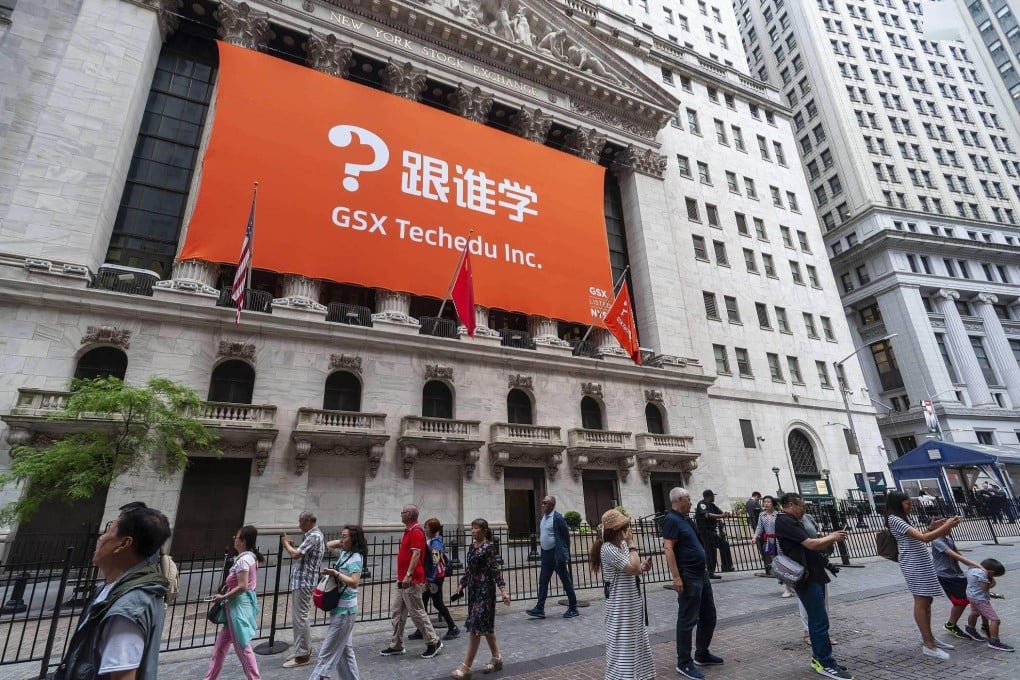GSX, online education firm at centre of Bill Hwang storm, fined by Beijing with three other companies
- Beijing fined TAL, Gaosi, Koolearn and GSX for false advertising amid an online education crackdown
- Online learning has benefited from a pandemic-fuelled boom in China, but recent regulatory scrutiny has sent stocks tumbling

The companies include TAL Education Group, Hong Kong-listed Koolearn Technology Holding, Beijing-based Gaosi Education Group, and New York Stock Exchange-listed GSX Techedu, which has seen its share price fall 70 per cent since March 17 after a series of margin calls involving Archegos Capital Management. They were fined for misleading consumers with false advertising, the Beijing Municipal Bureau of Market Supervision said on Sunday.
The four companies used “false or misleading pricing methods to trick consumers into trading with them”, according to the regulator, and were fined 500,000 yuan (US$77,000) each for breaching the country’s price law.
“Recently, the bureau organised special inspections for off-campus education after we received many complaints in this sector,” the regulator said in a statement. “We will continue to strengthen the enforcement of the industry in the next step and to safeguard the interests of the people.”
A TAL representative said that it would “provide good-quality tutoring content and services for users with stricter standards.”